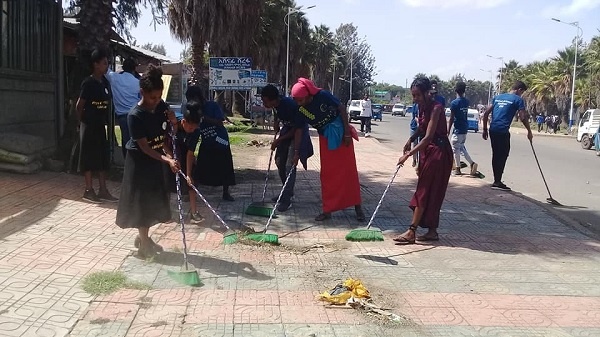
ADDIS ABABA (Semonegna) – Ethiopia’s Ministry of Health said that it had not registered any new case of Yellow fever in the country as of 27 April 2020.
A statement by Health Minister Lia Tadesse stated that the outbreak, which first began with an index case on 3rd March 2020 in Gorage Zone, SNNPR, had been contained. A total of eighty six (86) cases and four (4) deaths have been confirmed, where the last case was reported on 29 March 2020. The statement continues asserting that, as part of the response effort (by experts from the Ethiopian Public Health Institute /EPHI/, regional and zonal health offices), active case search was conducted in five Kebeles of Enor Ener Woreda (‘district’) of Gurage Zone, and 1,275 households as well as two schools were visited. In addition, 27, 178 individuals received the yellow fever vaccine. The outbreak is already contained on the 29 March 2020 and zero cases has been reported since then.
Yellow fever outbreak
On 3 March 2020, the Ethiopian Public Health Institute (EPHI) reported three suspected yellow fever cases in Enor Ener Woreda, Gurage zone, SNNPR. The three reported cases were members of the same household (father, mother and son) located in a rural kebele. Two of three samples tested positive at national level by reverse transcriptase-polymerase chain reaction (RT-PCR) and were subsequently confirmed positive by plaque reduction neutralization testing (PRNT) at the regional reference laboratory, Uganda Viral Research Institute (UVRI) on 28 March 2020.
In response to the positive RT-PCR results, the EPHI and Ministry of Health performed an in-depth investigation and response, supported by partners including WHO.
As of 6 April 2020, a total of 85 suspected cases have been notified from 6 kebeles in Enor Ener Woreda, of which 54 were reported from Wedesha kebele. Among the total suspected cases, 6 samples tested positive at EPHI national laboratory and they have been referred to UVRI for confirmation.
Public health response
- Epidemiological and entomological investigation has been conducted in Enor Ener Woreda since 8 March 2020.
- Rapid activation of vaccination response has been put in place. The country has rapidly mounted a reactive campaign from 26 to 31 March 2020 targeting approximately 32,000 persons in the affected and surrounding kebeles (12 kebeles total).
- An International Coordination Group (ICG) request is in process by the country for a larger scale reactive campaign.
WHO risk assessment
The risk at national level is assessed as high. The current outbreak in Gurage Zone, SNNP region shows rapid amplification of a yellow fever outbreak in a rural area. In the context of virtually no population immunity, the high number of suspect cases reported over a short time period is of high concern. The recent confirmation of the outbreak in cases with no history of travel is a concern. This is an indication of the existence of conducive factors for an increased incidence of yellow fever transmission and the spread of the disease beyond the hotspot areas.
Recent entomological studies, in addition to previous entomological studies conducted in 2018, have indicated the presence of competent vectors including Aedes species and the potential for spread to surrounding zones. The onset of the rainy season could increase density of mosquito vectors, thereby further exacerbating risk of spread.
Continue reading this story on WHO
